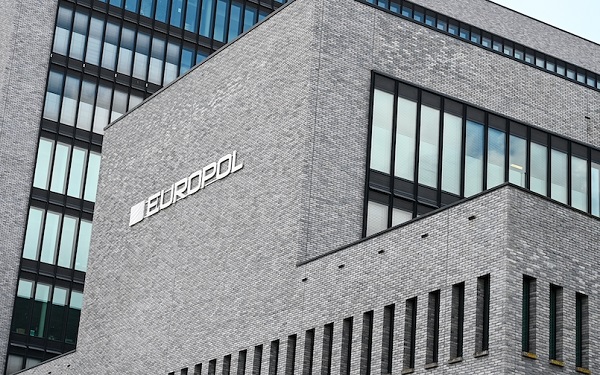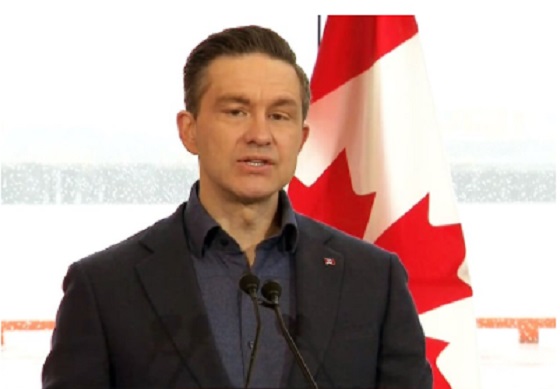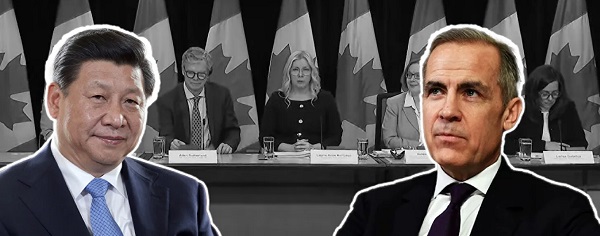Crime
Luxury Vancouver Homes at the Center of $100M CAD Loan and Chinese Murder Saga

In a case intertwining toxic loans, a brutal murder, and a court-ordered execution in China, amid the transnational flow of millions into Vancouver’s luxury real estate market, two families are locked in a legal battle over at least five high-end homes in areas of the city reshaped by decades of murky capital flight funneled through underground transfers into Canada’s West Coast.
The plaintiffs’ case, which initially focused on at least eight properties—now reduced to five—alleges that “many millions” worth of real estate was purchased with proceeds from unpaid loans in China and fraudulent transfers into Vancouver real estate.
On November 21, the Supreme Court of British Columbia delivered a procedural ruling allowing the six-year-long Canadian court battle, which includes sordid details such as the slaying of the lender family patriarch in China by the borrower, the now-deceased Long Ni, to continue.
Mr. Ni had promised the lender and his family high returns—up to 50 percent per annum—for providing him funds to invest in Chinese coal mines, the filings say.
Before his death, Changbin Yang, a 54-year-old businessman, had extended two series of loans to Mr. Ni, neither of which had been repaid. The first series, predating 2014, totaled approximately $100 million CAD, including interest. The second involved two loans in April 2017 of about $6 million CAD.
A key detail emerged from a Chinese court ruling in Hubei province. It said Mr. Yang’s claim for massive debt repayments stemmed from a series of promissory notes, culminating in a master promissory note “issued by Mr. Ni to Mr. Yang dated April 8, 2017, three months before Mr. Yang was murdered.”
On July 25, 2017, Mr. Yang was murdered in China at Mr. Ni’s behest. Following the murder, Mr. Ni was prosecuted, convicted, and sentenced to death by the Chinese courts. After exhausting all appeals, he was executed in 2020.
The plaintiffs in the lawsuit are five relatives of Mr. Yang, including his wife, Ms. Liu, and various other family members. Most are permanent residents of Canada living in China. They allege that the murderer’s family are “sitting on property in Vancouver worth many millions of dollars,” the November 2024 B.C. Supreme Court ruling says.
The plaintiffs are seeking judgment against all three defendants—Mr. Ni (now deceased), his wife, Ms. Chen, and his daughter, Ms. Ni—for debt, conversion, and unjust enrichment amounting to approximately $113.5 million CAD.
But Mr. Ni’s family, now living in Vancouver, denies financial ties to the executed borrower and asserts that the court battle is preventing them from selling some of their Canadian properties.
“Ms. Chen and Ms. Ni filed a joint response to the civil claim,” the procedural ruling states, in which “they deny any involvement in, or even knowledge of, the financial transactions between Mr. Yang and Mr. Ni. They plead the allegations of wrongdoing against them ‘are fabrications from start to finish.'”
Filings in the case detail the circumstances under which the murderer’s family settled in Vancouver, apparently four years after Mr. Ni started drawing on loans from his subsequent victim.
In her affidavit dated September 13, 2024, the murderer’s wife described how the family moved to Vancouver in 2011 after she obtained permanent resident status the previous year. She and her husband purchased their matrimonial home on West 33rd Avenue in December 2010 and moved in by March 2011. While Mr. Ni continued working in China, he visited his family in Canada several times a year.
Ms. Chen described their marriage as “a typical relationship in that part of China,” stating that she was a stay-at-home mother while her husband was the family’s breadwinner. She claimed to be aware only in a general sense of what her husband did for a living and, in accordance with her culture, would not “pry into his business affairs.” Ms. Chen also detailed purchasing two rental properties in 2011—on Granville Street and West King Edward Avenue—using money that her husband earned.
The murderer, Mr. Ni, was alive when the lawsuit was initiated and filed a “bare-bones” Response to Civil Claim in December 2018. Following his execution, his counsel withdrew, leaving Ms. Chen and Ms. Ni to face the allegations alone.
Initially, the plaintiffs’ claim targeted “at least” eight properties in Vancouver and Burnaby. They specifically alleged that each of these properties had been purchased by Mr. Ni with the loan proceeds from Mr. Yang and registered, either at the time of purchase or later, in the name of his wife or daughter. However, as the case progressed, doubts arose regarding the true ownership of three properties. The plaintiffs amended their claim to focus on five properties, refining their allegations.
The lawsuit now centers on five properties located across Vancouver’s most exclusive neighborhoods, including Shaughnessy, Kitsilano, Kerrisdale, and West Point Grey—areas renowned for their affluence and skyrocketing home prices.
Notably, West Point Grey is the riding of B.C. Premier David Eby and the neighborhood where Canadian Prime Minister Justin Trudeau once taught at a private school before entering Liberal Party politics. The plaintiffs allege they have traced funds from Mr. Ni’s business activities and alleged crimes in China to these properties.
Commenting on his sympathy toward the plaintiffs—despite long procedural delays in their case—in November 2024, Supreme Court Justice Kent wrote, “The plaintiffs are victims of a horrific crime committed by Mr. Ni.”
Addressing the defendants’ claims of ignorance regarding the murderer’s business activities in Chinese mining, he added, “Although Ms. Chen and Ms. Ni testify in their affidavits that they had no knowledge of Mr. Ni’s business affairs, they do not deny that the money used to purchase the properties registered in their name was supplied by Mr. Ni from his business activities in China.”
Travel restrictions due to the COVID-19 pandemic added another layer of complexity. Ms. Liu pointed out that Mr. Ni’s incarceration in China meant he was unable to testify in the British Columbia proceedings, although his testimony was available for the Chinese litigation. She also noted that in 2022, with China’s borders closed, the plaintiffs were uncertain whether they could travel to Canada for the trial.
According to Ms. Liu, the plaintiffs had information suggesting that Mr. Ni had used the loaned funds to invest in coal mines in China. They hoped to enforce the Chinese judgment against these assets before pursuing real estate recovery in Canada.
This case, far from finished, is representative of numerous similar legal battles over Vancouver property, characterized by complex transnational loan arrangements, frequently linked to underground banking and opaque business dealings in China. It underscores the challenges of Canadian courts in mediating massive property dealings involving allegations of transnational financial fraud, sometimes intertwined with violent crime and debt enforcement battles.
As Canada grapples with a housing affordability crisis—issues The Bureau’s investigations suggest are partly linked to international underground banking networks involving China and Middle Eastern states—this case seems emblematic of systemic challenges extending far beyond the dispute between the families of the murdered lender Mr. Yang and the executed borrower Mr. Ni.
The Bureau is a reader-supported publication. To receive new posts and support my work, consider becoming a free or paid subscriber.
Automotive
Dark Web Tesla Doxxers Used Widely-Popular Parking App Data To Find Targets, Analysis Shows


From the Daily Caller News Foundation
By Thomas English
A dark web doxxing website targeting Tesla owners and allies of Elon Musk appears to be compiled from hacked data originally stolen from a massive ParkMobile app breach in 2021, according to records obtained by a data privacy group.
The site, known as DogeQuest, first appeared in March and publishes names, home addresses, contact details and other personal information tied to Tesla drivers and DOGE staff. Marketed as a hub for anti-Musk “creative expressions of protest,” the platform has been linked to real-world vandalism and remains live on the dark web. Federal investigations into DogeQuest are already underway, the New York Post first reported.
“If you’re on the hunt for a Tesla to unleash your artistic flair with a spray can, just step outside — no map needed! At DOGEQUEST, we believe in empowering creative expressions of protest that you can execute from the comfort of your own home,” the surface-web DogeQuest site reads. “DOGEQUEST neither endorses nor condemns any actions.”

A screenshot of the DogeQuest surface website captured on April 3, 2025. (Captured by Thomas English/Daily Caller News Foundation)
ObscureIQ, a data privacy group, compiled a breakdown of the data — obtained by the Daily Caller News Foundation — and determined 98.2% of records used to populate the site matched individuals affected by the 2021 ParkMobile breach.
Encouraging destruction of Teslas throughout the country is extreme domestic terrorism!! https://t.co/8TCNIbrQxA
— Elon Musk (@elonmusk) March 18, 2025
DogeQuest originally appeared as a surface web doxxing hub, encouraging vandalism of Teslas and displaying names, addresses, contact details and, in some cases, employment information for roughly 1,700 individuals. The site used stolen ParkMobile records along with data purchased from brokers, flagging anyone who had a Tesla listed in their vehicle registration profile, according to ObscureIQ’s analysis.
The platform — now operating as “DogeQuest Unleashed” via a .onion dark web address — has also published personal details of high-value targets including senior military officials, federal employees and private sector executives in Silicon Valley. A spreadsheet reviewed by the Daily Caller News Foundation indicates several individuals targeted work areas like cybersecurity, defense contracting, public health and diplomatic policy. DOGE staff and their families appear prominently throughout the data.

A screenshot of DogeQuest’s surface website, captured on April 3, 2025. (Captured by Thomas English/Daily Caller News Foundation)
No other reporting has yet tied DogeQuest directly to the ParkMobile breach, which impacted over 21 million users in 2021. The company, which facilitates cashless parking across the U.S., quietly disclosed the breach in April of that year, admitting that “basic user information” had been accessed. ObscureIQ’s research shows that exposed data included email addresses, license plate numbers and phone numbers — enough to triangulate identity when paired with commercial data brokers.
The company agreed to a $32 million settlement to resolve a class-action lawsuit stemming from the data breach. The lawsuit alleged that ParkMobile failed to secure its Amazon Web Services cloud storage, allowing access to the data. Although payment data were reportedly not compromised, plaintiffs argued the exposed information still posed serious privacy risks — a claim now reinforced by its use in the DogeQuest doxxing campaign.
Despite federal attention, the site has proven difficult to keep offline, as the dark web mirror incorporates anonymized hosting methods, frustrating law enforcement takedown efforts.
The Department of Justice charged three suspects last week linked to physical attacks on Tesla vehicles, charging stations and dealerships across multiple states, though it has not publicly confirmed any link between those suspects and DogeQuest. Meanwhile, the FBI has acknowledged it is “actively working” on both the doxxing campaign and a parallel rise in swatting incidents affecting DOGE affiliates.
Crime
Europol takes out one of the largest pedophile networks in the world with almost 2 million users

From LifeSiteNews
An international group of police agencies has taken down one of the largest pedophile networks in the world with almost two million users.
Investigators from Bavaria, Germany, announced yesterday that they dismantled an online pedophile platform called “Kidflix” used to distribute child pornography that had around 1.8 million users worldwide. Police carried out raids in 31 countries and arrested 79 people in total.
The European police unit Europol coordinated the operation led by the Bavarian criminal police. Europol announced that around 1,400 suspects have been identified worldwide in “one of the biggest blows against child pornography in recent years, if not ever.”
According to Europol, the platform “Kidflix” was one of the largest pedophile networks in the world. Guido Limmer, deputy head of the Bavarian criminal police, said it was the “largest operation ever” organized by Europol. The platform’s server, with over 70,000 videos at the time, was reportedly shut down by German and Dutch authorities in early March.
The 79 people arrested were not only suspected of having watched or downloaded videos of child sexual abuse but some were also suspected of personally harming children. The police units carried out the raids from March 10 to 23 and reportedly confiscated thousands of electronic devices. In Germany alone, 96 locations were raided. Among the suspects was a 36-year-old man who not only viewed illegal material but also reportedly offered up his young son for sexual abuse. The child was given to child protection services after the man was arrested, the Bavarian police spokesman said.
Limmer also noted that one of the arrested suspects was a “serial” abuser from the United States.
According to Europol, “Kidflix” was set up by cybercriminals in 2021 and became one of the most popular platforms for pedophiles. The international police agency said that the investigation into the network began in 2022.
In October 2024, German police dismantled another large online pedophile network with hundreds of thousands of users, arresting six men associated with the platform.
Last year, Germany’s Federal Criminal Police Office revealed that the cases of sexual abuse against children and adolescents had more than tripled in the past five years.
-

 Bruce Dowbiggin2 days ago
Bruce Dowbiggin2 days agoBettman Gives Rogers Keys To The Empire. Nothing Will Change
-

 2025 Federal Election2 days ago
2025 Federal Election2 days agoPoilievre Will Bring in ‘One and Done’ Resource Approvals, and Ten Specific Projects Including LNG Canada Phase II
-

 2025 Federal Election2 days ago
2025 Federal Election2 days agoElection Security Briefing Confirms CCP-Linked Operation Boosted Carney
-

 conflict2 days ago
conflict2 days agoZelensky Alleges Chinese Nationals Fighting for Russia, Calls for Global Response
-

 2025 Federal Election1 day ago
2025 Federal Election1 day agoHarper Endorses Poilievre at Historic Edmonton Rally: “This Crisis Was Made in Canada”
-

 John Stossel21 hours ago
John Stossel21 hours agoGovernment Gambling Hypocrisy: Bad Odds and No Competition
-

 2025 Federal Election1 day ago
2025 Federal Election1 day agoMark Carney’s radical left-wing, globalist record proves he is Justin Trudeau 2.0
-

 2025 Federal Election1 day ago
2025 Federal Election1 day agoAn In-Depth Campaign Trail “Interview” With Pierre Poilievre










